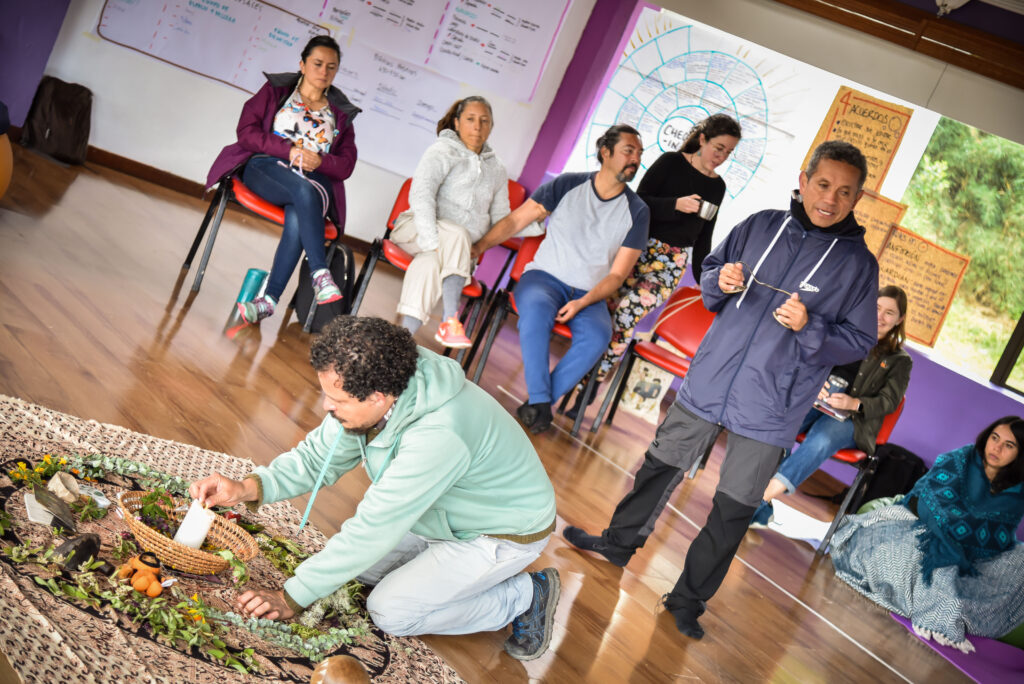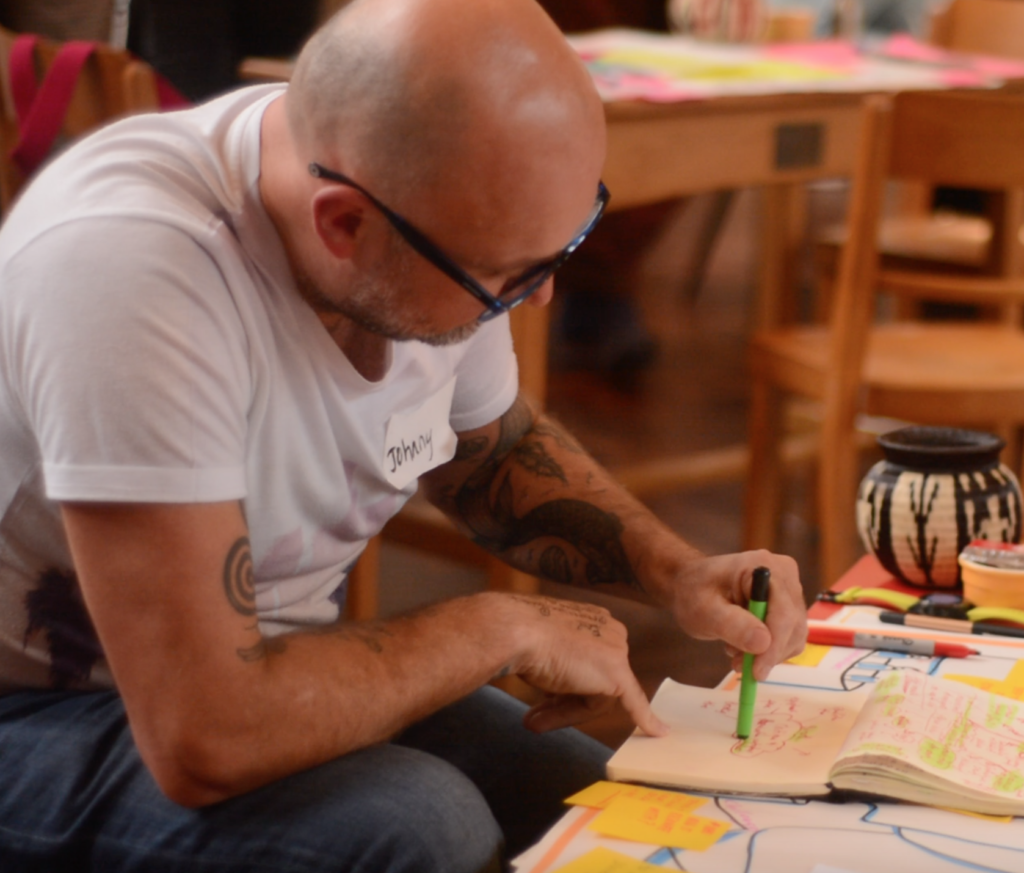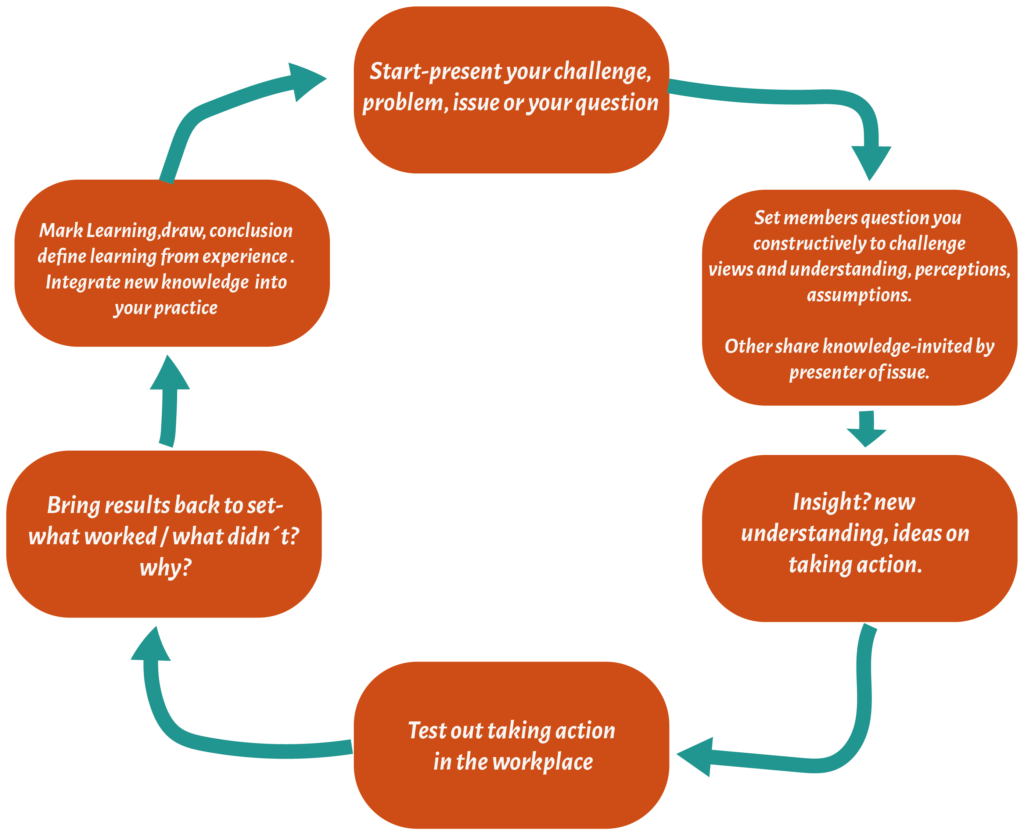Action Learning
What is action learning:

Action learning is a structured mechanism for working in small groups to address complicated issues. It is well suited as a tool for experiential learning because it creates a space for reflection and learning on real issues in a way that helps the practitioner move forward.
When are Action Learning Sets suitable?
Action learning sets are particularly appropriate for professional/practice based learning and personal development work. The most common applications fall into two categories:
- A project in which action learning set members are involved and are able to influence the outcomes by their actions.
- An issue that concerns how specific action learning set members operate in the work/voluntary context and one which they wish to improve and which could benefit from the support and challenging of the other set members.
Action Learning sets can be applied to life, work, voluntary work, study and many subjects that include a commonality between the people participating, for example; workers of the same company, students of the same subject, groups that share a particular interest or goal.

What Are Action Learning Sets?

Action Learning Sets are made up of a group of people who meet together regularly over a reasonable time period and ‘present’ and collectively work on issues faced in ongoing practice.
The group will then help the ‘presenter’ work on that issue through supportive but challenging questioning: encouraging a deeper understanding of the issues involved, a reflective reassessment of the ‘issue’, and an exploration of ways forward.
What do Action Learning Sets look like?
We use the following process to create an environment for naming issues, reflection on those issues, identifying root causes and then planning actions. In such a process the ‘presenter’ is encouraged to:
- Describing the work or situation What happened/ is happening ? ¿What is the challenge I need support with/ want to discuss?
- Clarifying (identifying and understanding how the ‘presenter’ perceives the situation)
- Analysis –(making sense of the situation – why has this happened? – this could include a dialogue if relevant – it could also uncover related issues that could result)
- Identifying Root causes
- Action planning – (what can you do about it – how will future work be implemented and evaluated
What do Action Learning Sets Require?
For an effective Action Learning Set, the following skills are important and ither should already be present or be developed as part of the process:
- Listening – a key skill – listening both for facts and for feelings.
- Empathy – the participants need to be able to try to view situations from the ‘presenter’s ‘perspective
- Helpful questioning – questions that enable the ‘presenter’ to critically reflect on a situation, their practice, their needs. Such questions should support the ‘presenter’ to: identify strengths and weaknesses, understand the causes of a problem, think through actions and consequences – ask questions rather than give opinion and pass judgment (unless invited by presenter).
- Encouragement – support the ‘presenter’ to build confidence in themselves.
- Reinforce the positives and enable them to recognise the negatives and find alternative ways of doing things.
- Summarizing – reflect the story back to the ‘presenter’ in a different way (reframing) pinpointing key issues and different possibilities.
- Mutual learning – the other participants and facilitators do not need to have all the answers.
Detailed description of the process

Key requirements for effective Action Learning Sets
- Action learning sets are most effective when the commitment is voluntary.
- Action learning sets should focus on real-life practice-related issues, ones which are more open-ended in nature and which do not have a right or wrong answer.
- Participants must be ready to: be honest with themselves and others, respect others and their viewpoints and take responsibility for our own actions.

